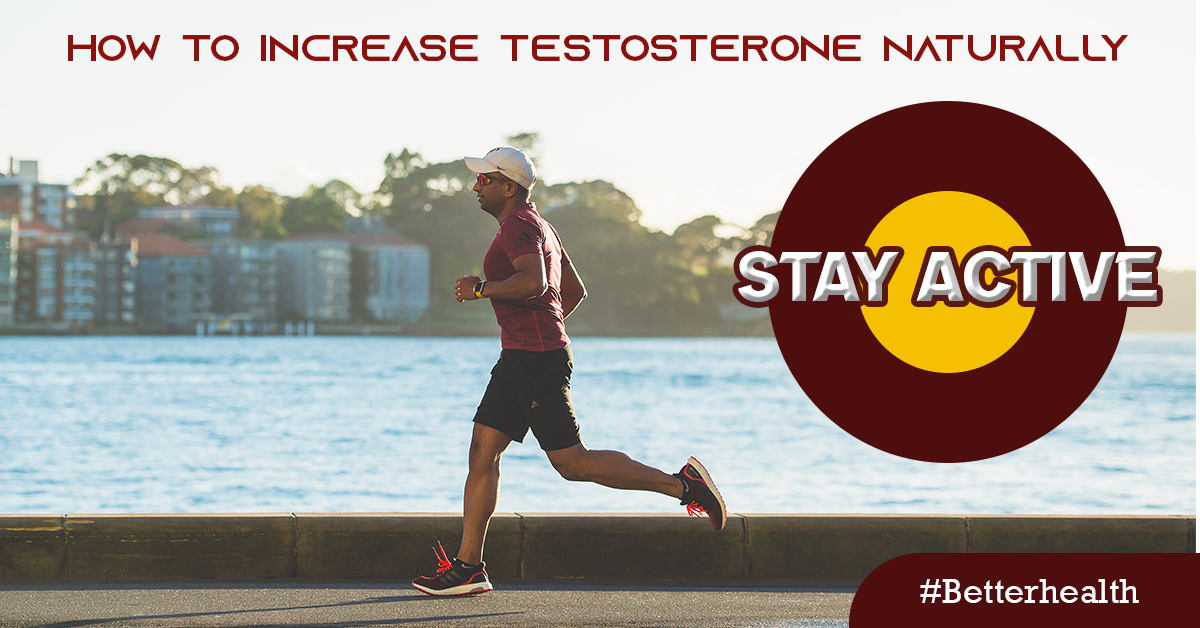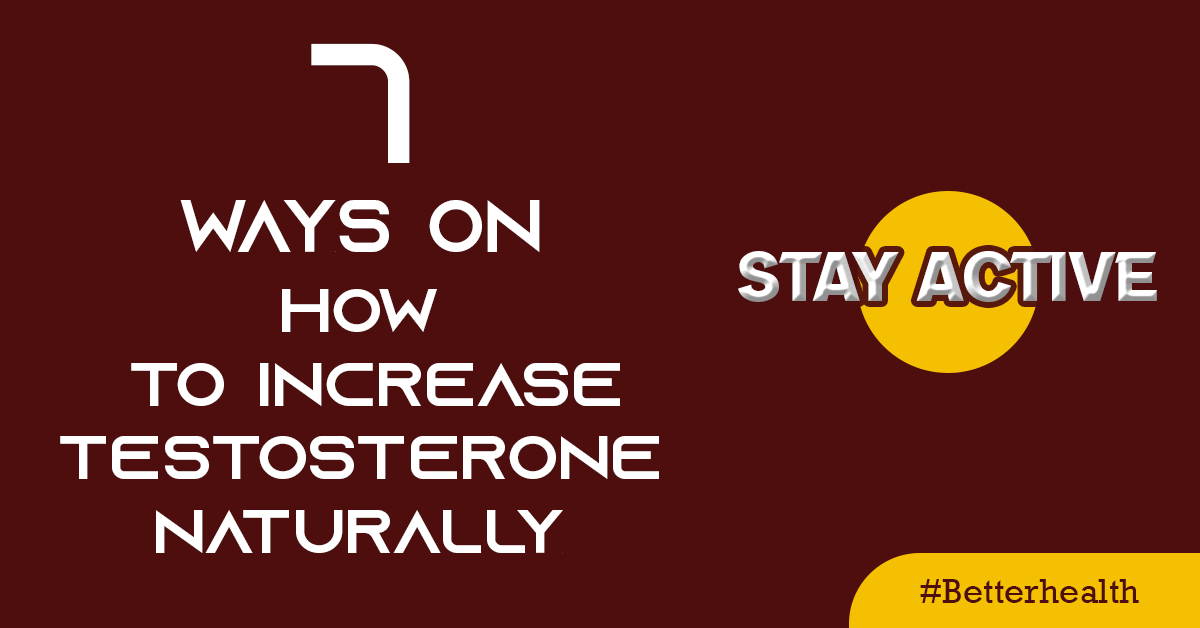How To Increase Testosterone Naturally(A Complete Guide)

How To Increase Testosterone Naturally: Testosterone is a crucial hormone, and not just for men’s health or sexual wellness. Low levels can affect one’s mood, libido, and sleep, and it plays a role in everything from fat distribution to muscle mass to bone strength.EnoughInfo.com

Even while there are options for dealing with low testosterone, such as testosterone replacement treatment or pills, they aren’t always effective, there have to be more studies done on the dangers, and they can cause side effects like insomnia. But, there are natural methods to increase the hormone’s synthesis in the body, and many of them are straightforward lifestyle adjustments that have additional benefits for sleep and health.
Read on for more on a natural approach to raising your testosterone levels.
FAQs & Answers on How To Increase Testosterone Naturally
1. What factors lead to low levels of testosterone in men?
Men’s testosterone levels decline with age, but low levels can also be brought on by a variety of medical issues. Injuries to the testicles might fall under this category. the use of radiation and chemotherapy to treat cancer
2. Do eggs increase male hormone levels?
Eggs are a terrific way to increase your daily intake of protein, cholesterol, vitamin D, and omega-3 fatty acids, all of which play a role in your body’s natural testosterone synthesis. Muscle growth and development are aided by the protein in eggs, which also helps enhance testosterone levels.
3. Are Bananas high in testosterone?
Bananas don’t reduce testosterone, they raise it, though. We’re not clear why bananas have this negative connotation about testosterone. They might not contain enough protein or healthy fats to qualify as a meal on their own, but they don’t deplete your muscle mass or destroy your sex drive.
How To Increase Testosterone Naturally

1. Get in shape by working out and lifting weights
Several lifestyle-related disorders can be avoided by exercising regularly. In addition, it has been shown to increase testosterone levels. One study found that the effects of exercise on testosterone levels depend on a number of factors, including the specific kind of exercise and the amount of intensity with which it is performed. Outdoor Fitness Exercises Safe for Seniors (Best 15)
Specifically, weightlifting and other forms of resistance exercise have been demonstrated to increase testosterone levels in the short term. All forms of exercise should be beneficial, but high-intensity interval training (HIIT) has been shown to have particularly impressive results. In general, exercise, and particularly weightlifting and high-intensity interval training, can raise testosterone levels.
2. Consume protein, fat, and carbohydrates
In addition to other hormones, testosterone levels can be impacted by what you consume. Moreover, overeating or continual dieting might affect your testosterone levels. Consuming adequate protein helps promote weight reduction, which may also be advantageous, as well as maintaining appropriate testosterone levels.
Increasing your intake of good fats may also support healthy hormone and testosterone levels. According to some studies, a low-fat diet may actually cause testosterone levels to drop. The optimum diet is one that is balanced, nutrient-dense, and mostly composed of whole foods. Your hormone levels may be optimized and your general health can be supported by a nutritious protein, fat, and carbohydrate balance.
Eating a balanced diet that is rich in nutrients and has appropriate portions of protein, fat, and carbohydrates may maintain normal testosterone levels.
3. Minimize cortisol and stress levels
Research frequently emphasizes the risks of chronic stress, which can increase cortisol levels. Cortisol spikes can quickly lower testosterone levels. These hormones frequently function in a seesaw-like fashion: When one rises, the other falls. Moreover, stress and elevated cortisol levels might cause you to eat more, put on weight, and store unhealthy body fat around your organs. In turn, these modifications can have a deleterious impact on testosterone levels. How To Become A Judge(The Ultimate Guide)
Try to control your stress levels for optimum hormone levels and wellness. It may be helpful to maintain an active lifestyle, get plenty of sleep each night, and practice some stress-relieving methods. Stress that persists over time might harm one’s health and lower testosterone levels. How To Deal With Stress(Guide2023)
4. Consider taking supplements
Whilst the use of multivitamins is sometimes contested, certain supplements may help maintain normal testosterone levels. One research found that postmenopausal women with low blood levels of zinc had a rise in testosterone levels and an improvement in sexual performance after taking a zinc supplement.
Another analysis suggests that males with low testosterone levels and infertility may benefit from taking zinc supplements, especially those who are testosterone deficient. Some older research show that saw palmetto, ginger, and ashwagandha are among the herbal supplements that may help sustain healthy testosterone levels. In spite of this, additional study is required.
If you have any preexisting health concerns or are already taking any drugs, you should consult with your doctor before adding any supplements to your daily regimen. Supplemental zinc may help restore testosterone levels in those who are deficient. How To Balance Work And Family(The Ultimate Guide)
5. Obtain a lot of good sleep
You should treat sleep as seriously for your health as you would your food and exercise. A man’s testosterone levels may also be significantly affected by the quality of his night’s sleep. One study comprising 2,295 male teenagers and adult males suggested a relationship between sleep disturbances and reduced testosterone levels.
While research shows that different people need different amounts of sleep, one tiny study from 2011 did find that sleeping for only 5 hours a night was associated with a 10%-15% decrease in testosterone levels. Despite the fact that some people may function adequately on less sleep, the vast majority of studies advocate getting at least 7 hours of sleep nightly. Optimal testosterone levels and health are the result of regular, restful sleep. How To Treat Shift Work Sleep Disorder
6. Substances that contain estrogen should be avoided.
Several more variables may also influence your hormone levels. To begin, your sex hormone and testosterone levels are directly influenced by your sex life.
Excessive levels of exposure to substances that act like estrogen may also reduce testosterone production. Try to limit your everyday contact with bisphenol-A (BPA), parabens, and other chemicals that can be present in some plastics. The health and testosterone levels of men can be improved by limiting their exposure to substances that act like estrogen.
7. Keep an eye on your alcohol consumption
Alcohol and testosterone have a convoluted interaction.
Excessive alcohol consumption has been linked in certain studies to lower levels of the male hormone testosterone. Your testosterone levels may begin to plummet as soon as 30 minutes after your first drink. Reduced sperm production and testicular shrinkage have both been linked to chronic alcohol abuse.How To Stop Drinking Alcohol ( Step- by Step- Guide )
It’s interesting to note that testosterone levels can be used to predict alcohol dependency or onset of alcohol consumption in studies of teenage boys and young men. Increases in both salivary and plasma levels are indicative of heavy alcohol use and an earlier start of alcoholism.
The link between alcohol and testosterone is nuanced. The health of your testicles and your testosterone levels might be negatively impacted by drinking to excess, so moderation is key.
Conclusion
Male testosterone levels peak around 19 and drop with age. They drop by 1%–2% every year beyond 30 but may be stable in your 40s. Low testosterone has been linked to fat, sickness, and early mortality, making this reduction worrisome. Those conceived females need healthy testosterone, estrogen, and progesterone levels. A good diet and lifestyle can boost testosterone levels and general health.
Recommended;
How to Improve Your Prostate Health (11 Top Tips)




